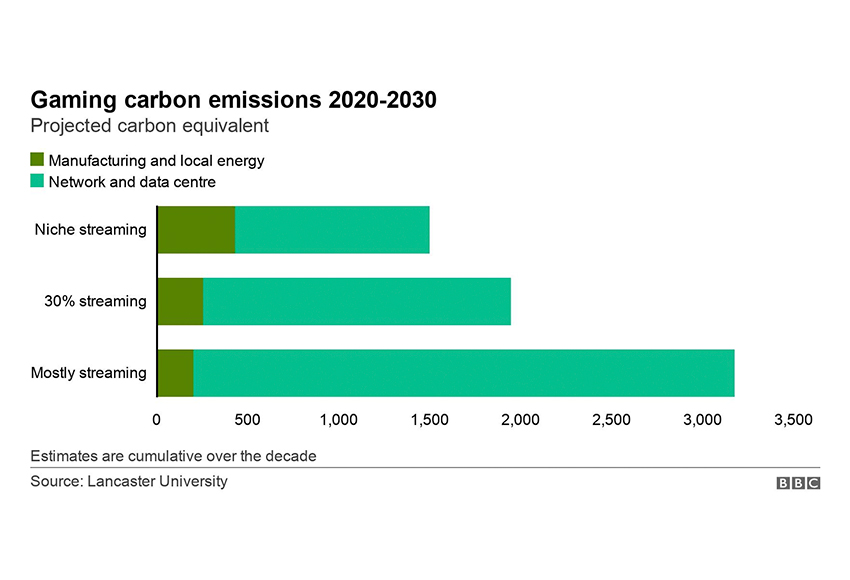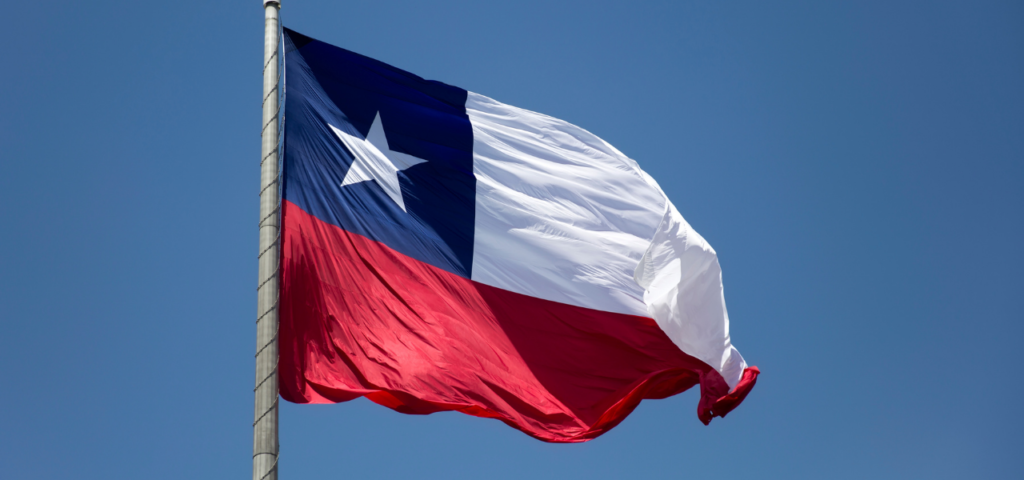During the year 2022, one out of three people worldwide are playing video games. This particular industry knows no boundaries. It conquers the young and elderly population alike. That is why there is no doubt in saying that from Chile to Japan everyone loves to play video games.
Currently, the video game industry wants to get involved in the biggest challenge of our time: the fight against climate change.
Recent studies illustrate how the environmental impacts of the video gaming industry is expected to rise drastically, from materials needed to be mined for gaming consoles (including Copper, Nickel, Gold and Zinc) to energy intensity for cloud gaming.
Everything in the video game life cycle contributes to a large carbon footprint, from the design of the game itself to the process of manufactured, shipped, and sold. But what about digital games? Well, most games are played online and require a large amount of data usage contributing to the “internet pollution”, which accounts for almost 4% of global GHG emissions.

Hopefully, there are ways to improve sustainability within the sector and to successfully impact players around the world.
Playing for the planet: an interesting alliance to tackle climate change
The Playing for the Planet Alliance was launched on 23 September 2019 at UN Headquarters in New York during the UN Secretary-General’s Climate Action Summit.
This alliance is facilitated by UNEP, as it recognizes the unique platform for climate action and education this industry represents. In joining the Alliance, members have made commitments ranging from integrating green activations in games, to reducing their emissions and supporting the Sustainable Development Goals.
It was designed under a framework of shared principles for organizations of all sizes to make commitments, set targets and track collective progress. The Playing for the Planet Alliance maintains a full list of commitments and achievements that can be found in the Alliance’s Annual Report.
Member commitments
As mentioned above, not all of these commitments are climate related. There is a strong component of education that can be found in the action plans enforced by each company. The most relevant climate commitments are the following:
- Corporate carbon footprint reductions and a collective shift to green energy.
- Insertion of green nudges into games
- Commitments to offset emissions (for internal operations and gamers’ devices)
- New circular economy design and recycling offerings to control plastics and e-waste

What was achieved so far
Since its launch in 2019, the alliance has started the Green Game Jam, a competition between game studios looking to add meaningful actions into their existing games to combat climate change. The alliance supports ecosystem restoration projects and has planted over 1 million trees so far.
It is very encouraging to notice that 60% of all Alliance members have a commitment to become net zero or carbon negative by 2030, at the latest, with more set to be made in 2022, once baseline research has been carried out.
Decarbonisation framework: UNEP DTU Partnership (UDP), is conducting an investigation to support the members of the Alliance to accelerate their progress on net zero gaming. The investigation provides a comparative analysis of existing reporting schemes and definitions of scopes 1-3 in the context of gaming.
This report provides policy recommendations, suggestions for net zero transition strategies and guidance for designing a common net zero framework.
Two of the biggest players in the industry have made important contributions for all members of the Playing for the Planet Alliance.
- Sony created a carbon footprint tool specific to the gaming sector. Apart from that, it is looking at adapting the tool to be consistent with the Science Based Targets initiative framework.
- Microsoft conducted and published a report that details the amount of energy in Watt hours that a 30 minute videogame consumes. This may seem a trivial detail. However, accurate and recent data are crucial for effective planning.
Still a long way to go
These first steps are highly important to ensure a more sustainable video gaming industry, especially building tools and frameworks that are sector specific, while being transparent on the progress of implementing it among the members.
Stil, there is a long way to go and the positive potential that influences the industry not only relies on its value chain, but also on the minds of the players remains untapped.
Impact on the Voluntary Carbon Market is still uncertain as the alliance has not set standards or guidelines for voluntary compensation of carbon emissions. But one could figure that if the industry moves towards the learning path of Science-Based Targets Initiative, it will shift to Carbon Capture projects from both Nature-Based Solutions and Tech-based initiatives.
At ALLCOT Trading, our mission is to promote additional sustainable impact with every transaction. If you want to achieve this in a fair, transparent and win-win scenario, contact us and together we will make it happen.



